 The Conjuring 2
The Conjuring 2
Director: James Wan
Starring: Patrick Wilson, Vera Farmiga, Madison Wolfe, Frances O’Conner, Lauren Esposito, and Simon McBurney
While waiting inside a darkened theater a young woman wearing a nun outfit with a painted white face wandered around the theater scaring unsuspecting moviegoers. While watching the playful theatrics help assist in building the optimal atmosphere for watching the newest summer scarefest, I overheard a young man telling his girlfriend “when it gets scary just tell yourself that it’s only a movie”. This comment immediately made me think of the tagline for Wes Craven’s 1972 horror shocker “Last House on the Left” that says “To avoid fainting, keep repeating: It’s only a movie, it’s only a movie, it’s only a movie”. In todays oversaturated horror genre market it’s unlikely that a film will affect audiences as much as Wes Craven’s film did in the 1970’s but it’s nice to see some film directors are still trying.
Much of the recent resurgence in the demon/apparition/ghost storytelling in film can be attributed to the creative mind of James Wan and his 2010 film “Insidious”. Utilizing clever effects and playing the genre characteristics for all of its knowing jump scares and anticipatory frights helped bring the scares back into the mainstream market. Though it wasn’t until 2013’s “The Conjuring” that Mr. Wan succeeded in capturing the essence of the traditional ghost story.
Ed (Patrick Wilson) and Lorraine (Vera Farmiga) Warren return as the famed ghost hunters in “The Conjuring 2”. The two, now very famous personalities, are making appearances on talk shows defending their apparitional findings. However they are not received as respected authorities, in fact they are considered more charlatans than conjurers. This doesn’t stop them from having a connection to the unknown; specifically it doesn’t stop Lorraine from having visions of a terrifyingly ghostly nun offering a warning. A warning the couple ignores when a young girl becomes possessed by a malevolent spirit in England.
Let’s get this out of the way, “The Conjuring 2” will make you jump, it made me jump a few times. When you can evoke this quality for a horror fan, many followers of the genre can spot a jump scare coming a mile away, you've achieved something special. James Wan has been doing this for years. Mr. Wan is an excellent director who understands the composition of horror films, who understands how genre characteristics work with one another, who understands that in order to trick the intelligent horror fan he needs to do things differently. That was makes Mr. Wan so good at his craft, he pays attention to the little details and puts as much effort into the small elements as he does the big ones. In this regard “The Conjuring 2” does a lot of things really well.
Unfortunately Mr. Wan has also gone bigger and bolder with his visions as his film career has expanded. Perhaps this is what makes him a good choice to direct something like DC Comics upcoming “Aquaman”. However in this horror film, one that states that it is "based on a true story" and grounds itself firmly in the reality of this family from England, there are quite a few moments that don’t seem to fit the construction of the world crafted. The use of a walking CGI scare element, a character similar to one seen in the film "The Babadook", is out of place as are some of the scares that will provoke a jump but quickly begin to replay themselves without much effectiveness. And at over 2 hours in length the film begins to feel more drawn out than dialed in. Still, during this time Mr. Wan gives us sights, specifically a nun character, that is bound to be seen walking the neighborhood at Halloween this fall.
"The Conjuring 2" is a worthy sequel, that's a hard accomplishment to achieve in this genre. While the film will undoubtedly have some audiences squirming with frightful anticipation, these scares are great in the moment but won't last long after viewing like they did with the first film. While some will appreciate the vagueness of the story elements, some will be asking for more details; regardless the film does a good job of creating drama with the characters and displaying the dynamics of a family and married couple struggling to comprehend the unknown. Director James Wan is doing a lot of familiar things very well in "The Conjuring 2", providing a little bit of everything to cover all tastes returning to the haunted house.
Monte's Rating
3.25 out of 5.00

 ‘Now You See Me 2’ conjures too much silliness to believe its magic
‘Now You See Me 2’ conjures too much silliness to believe its magic
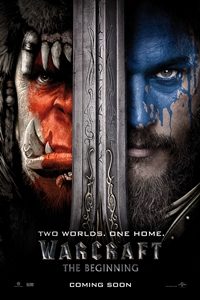 Despite impressive visuals, ‘Warcraft’ loses its way
Despite impressive visuals, ‘Warcraft’ loses its way
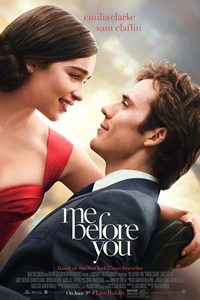 Clarke’s bright star turn lights up ‘Me Before You’
Clarke’s bright star turn lights up ‘Me Before You’
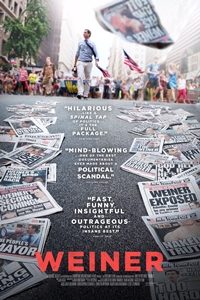 A politician exposed:
Behind the award winning Weiner.
A politician exposed:
Behind the award winning Weiner.  Make casual plans to check out ‘Maggie’s Plan’
Make casual plans to check out ‘Maggie’s Plan’
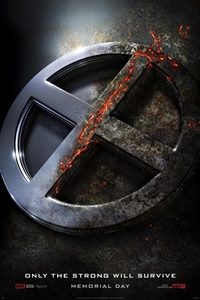 X-Men: Apocalypse
X-Men: Apocalypse
 ‘The Nice Guys’ takes the buddy-cop genre to another level
By Kaely Monahan
‘The Nice Guys’ takes the buddy-cop genre to another level
By Kaely Monahan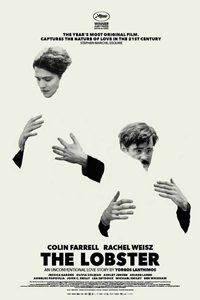 Reach out and grab ‘The Lobster’, the best film of 2016 (so far)
Reach out and grab ‘The Lobster’, the best film of 2016 (so far)
 ‘Neighbors 2: Sorority Rising’ hosts a less funny, more vulgar block party
‘Neighbors 2: Sorority Rising’ hosts a less funny, more vulgar block party
 ‘A Bigger Splash’ does not reach its thirsty audience
‘A Bigger Splash’ does not reach its thirsty audience
 “Patel plus Irons equals a gem in ‘The Man Who Knew Infinity’”
“Patel plus Irons equals a gem in ‘The Man Who Knew Infinity’”
 Captain America: Civil War
Captain America: Civil War
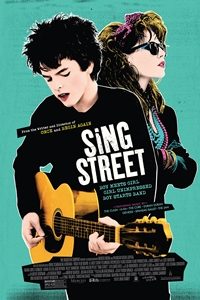 “’Sing Street’ is a wonderful ‘80s music, coming-of-age road trip”
“’Sing Street’ is a wonderful ‘80s music, coming-of-age road trip”
 “Sarandon extends a warm invitation to ‘The Meddler’”
“Sarandon extends a warm invitation to ‘The Meddler’”
 “’Papa: Hemingway in Cuba’ is important but not quite a cinematic page-turner”
“’Papa: Hemingway in Cuba’ is important but not quite a cinematic page-turner”








